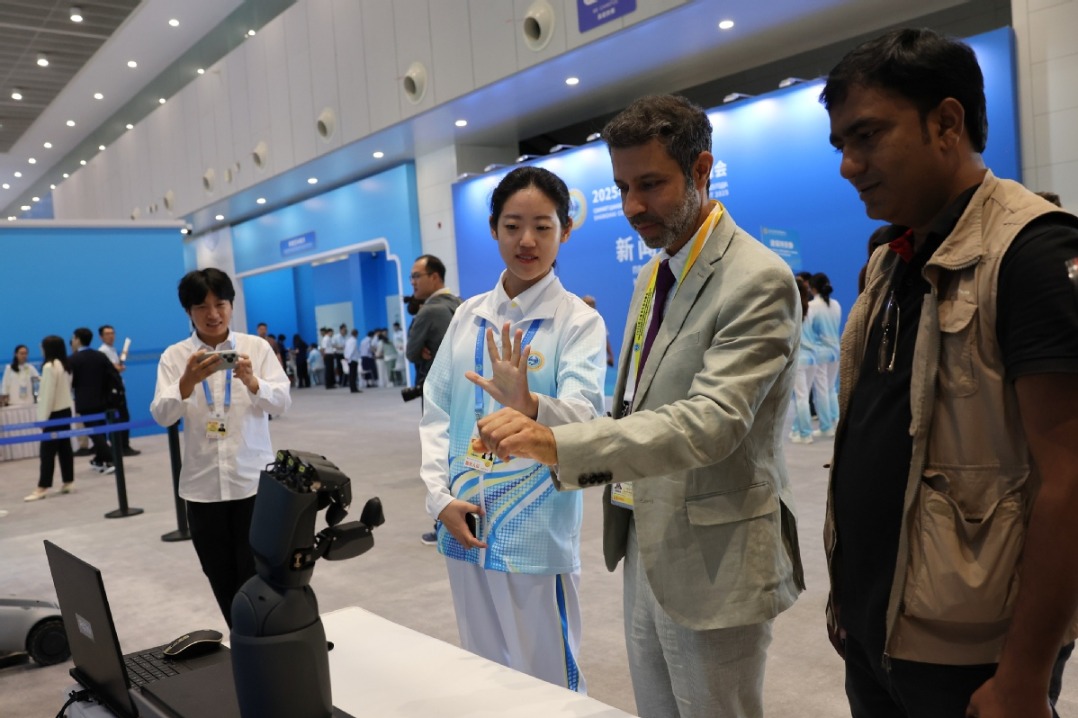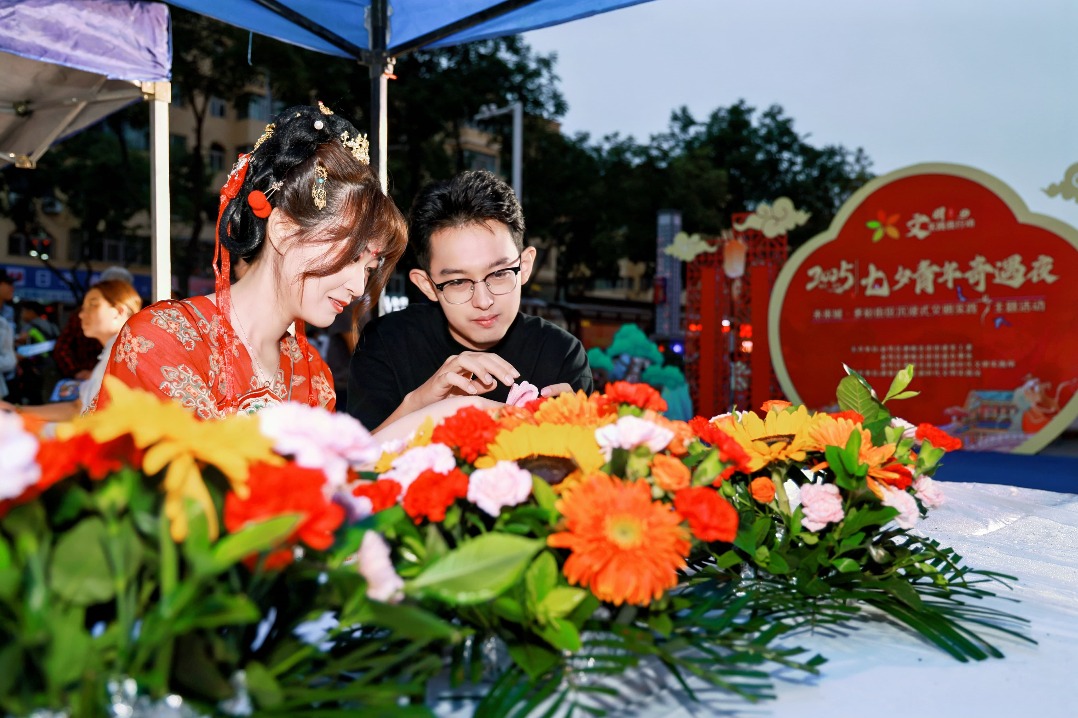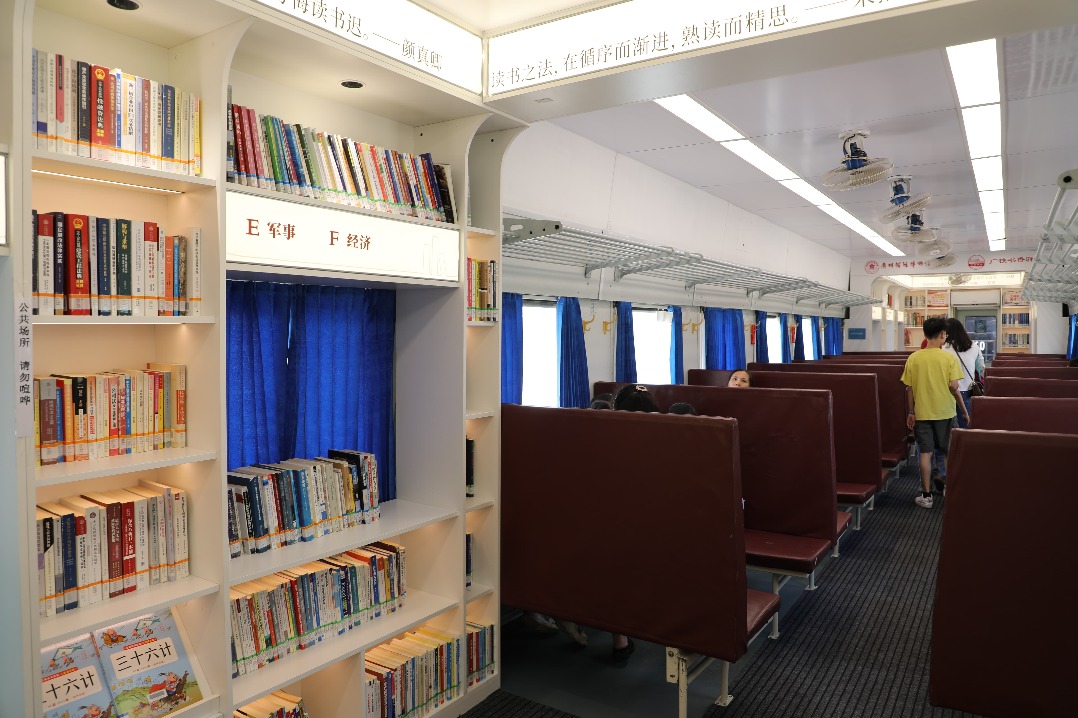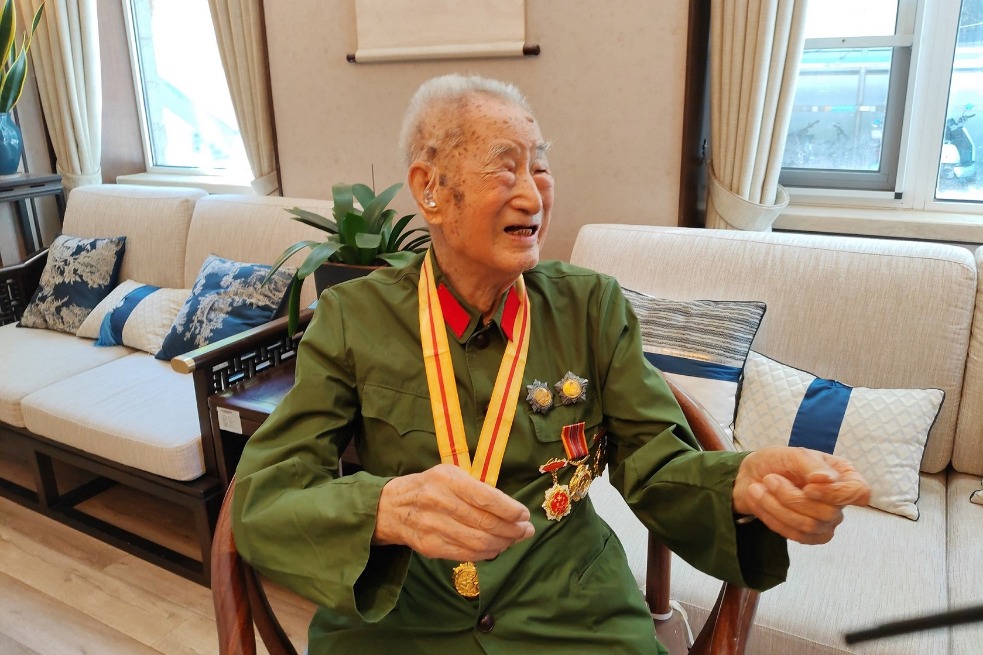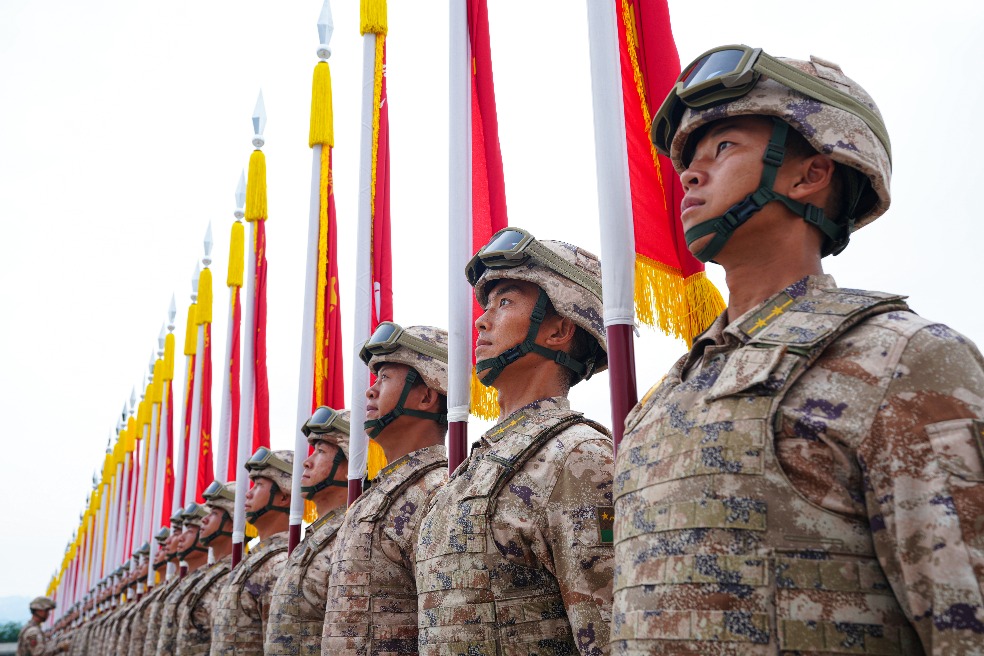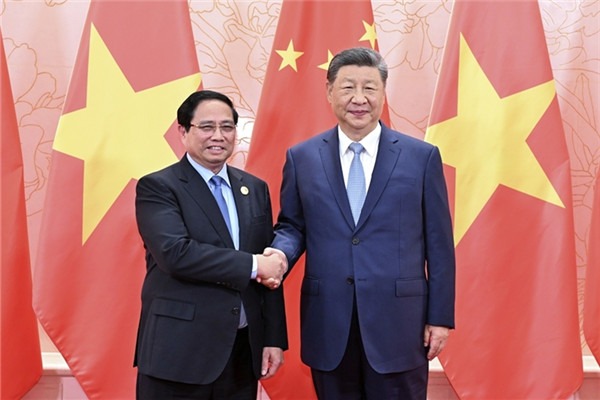Egyptians laud TCM veterinary summer program

Eighteen students and faculty members from Suez Canal University in Egypt completed a 15-day summer program in Beijing recently, where they studied traditional Chinese veterinary medicine through a mix of lectures, clinical observation and practice.
The summer school, organized by the China Agricultural University, aims to build an international platform for exchanges in traditional veterinary medicine while exploring its applications in animal health.
The curriculum included fundamental TCVM concepts such as the doctrine of internal organs and clinical training, including acupuncture on cats and dogs, pulse diagnosis and the identification of herbal medicines.
"What impressed me most was pulse diagnosis," said Mostafa Zein, a veterinary medicine student from Suez Canal University. "In Egypt, we rely heavily on instruments and laboratory tests. But here, through simple sensory observation, we could gain extensive information about an animal's condition. It was a very different approach," he said.
Omar Sherif, another student participant, said he was impressed by acupuncture. "We had heard of it in Egypt, but this was my first time seeing it applied in practice. I was amazed that tiny needles could have such diverse effects on animals, even helping with conditions once thought untreatable," he said, adding that he would share the knowledge back home.
According to Hu Yusheng, vice-president of China Agricultural University Veterinary Teaching Hospital, the program was designed with Egypt's cultural and medical traditions in mind.
"We knew that in Egyptian traditional medicine, there are practices like cupping and bloodletting, so we focused on external therapies as an entry point," said Hu, who was also a teacher at the summer program.
"By letting students feel the animal's pulse before and after acupuncture, they could immediately sense the changes, which they found fascinating."
Students also observed acupuncture used on horses, a practice with a long history in TCVM. "This was particularly relevant, as the equestrian culture remains strong in Egypt and across the Arab world," Hu said.
Traditional Chinese veterinary medicine has been practiced for centuries, with treatments such as acupuncture and herbal remedies originally developed for large animals and now increasingly applied in companion animal care. With the global pet industry and equine sectors growing rapidly, TCVM is gaining new opportunities.
Pet diseases, including tumors and immune disorders, have become more common, and expectations from veterinary care are rising, according to Hu.
"Acupuncture and herbal medicine can improve animals' immunity, enhance recovery after chemotherapy, and improve their quality of life, providing the veterinary world with an important perspective rooted in Eastern wisdom," he said.
The program is expected to be the beginning of long-term academic cooperation between the China Agricultural University and Suez Canal University.
Ibrahim Hegab, a professor from Suez Canal University who participated in the summer school, said at the closing ceremony that TCVM is an evolving science.
"Research continues to shed light on the mechanism behind these ancient practices and their innovations drive the development of new applications and formulations," he said, adding that they would continue to learn about the profound benefits the science offers.
Zhuo Yiran contributed to this story.
- Egyptians laud TCM veterinary summer program
- New war memorials honor sacrifices home, abroad
- Closer ties highlighted for regional energy security
- Xinjiang's cotton irrigation technologies contribute to Central Asia's sustainable development
- Greater collaboration in AI high on agenda
- China's nanotechnology patents top the world: white paper
















